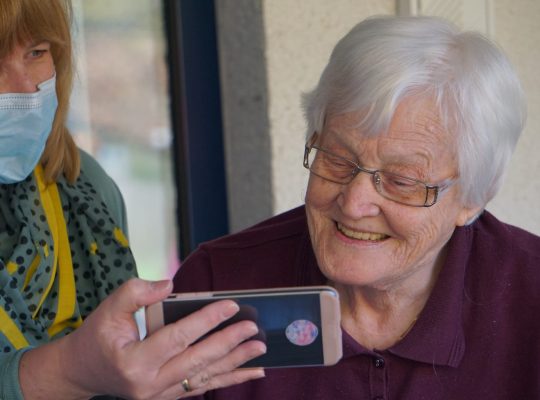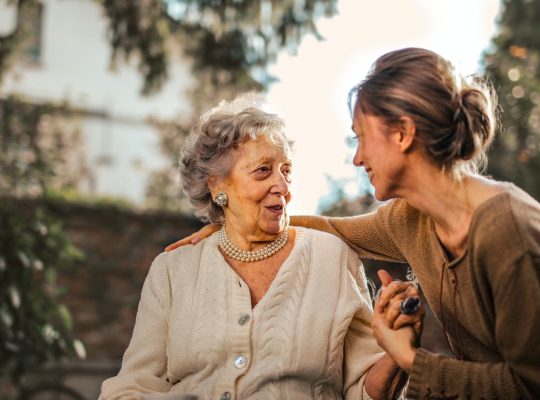It is essential to make decisions together to increase mutual involvement between the caregiver and the cared-for. This article offers some tips to help caregivers make decisions together with the elderly and their loved ones. Read the tips and put them into practice!
1) Listen to Previously Recorded Wishes
When an older person is acutely hospitalized, their medical condition is often more severe. This makes it difficult to discuss calmly what is important to them and what their wishes are. Ask if hopes and preferences have already been discussed and documented. For example, partners, significant next of kin, family doctors, etc.
2) Ask What Is Most Important to the Patient
Ask what the elderly patient would like to discuss. Many older adults have a variety of health issues. What is most important to the patient? Studies have shown that patients and caregivers sometimes think differently about what is most important. For example, caregivers tend to believe that pain management is the most important, but independent functioning is often the most important for older patients.
3) Ask About Personal Circumstances
Explicitly invite patients to share information about their personal circumstances with their caregivers. Older patients may think, “My caregiver has done the study so I won’t say anything. However, caregivers need information from patients about what is important to them and what they want. This allows the healthcare provider to present a treatment that fits the individual’s wishes and preferences.
4) Tailored Communication
Older adults often take longer to process information, and their health literacy may vary widely. For example, to quickly assess the patient’s level of health literacy, ask, “How often do you need help reading the instructions for use of your medication? Responses of “sometimes,” “often,” and “always” indicate low literacy. You can also ask the patient to reiterate what was agreed upon (teach-back method) to ensure that the explanation was sufficient and that the patient understood.
5) Promoting Collaboration in Elderly Care
In elderly patients with multimorbidity, multiple healthcare professionals are often involved in different environments. Overview, coordination, and collaboration are, therefore major challenges for both the care providers and the elderly themselves. Promote mutual cooperation in the care of the elderly in the community!

6) Emphasize the Importance of Companionship
Point out that it is always possible, and often wise, to be accompanied to meetings with care providers. A familiar person can assist the elderly patient in conversation, help explain things to the caregiver and help the patient better understand the caregiver. In addition, loved ones usually know what is essential to the elderly patient and what he or she wants. Loved ones can also help put into words what is difficult for the elderly patient to put into words.
7) Indicate That It Is Possible to Take Time for Reflection
Explain that it is normal for the patient to want to talk to his or her loved ones or confidants to gather their thoughts about important decisions. It is usually possible to take time for reflection. If the situation is not severe, there is usually time to reflect on the decision. Remember that further appointments may be scheduled.
8) Let Nature Take Its Course
No matter how hard you try, you cannot stop the train called aging or prevent it from derailing. But with compassion and kindness, you can enjoy the scenery as you take your last ride with the elderly. Just remember, it is them who decide the route, not you.
Aging and caregiving can be unsettling for the older adult and the caregiver. However, by keeping in mind the fears, concerns, and needs of the older adult and helping the older adult to be an active participant in his or her care, he/she can be reassured that he or she is in good hands.







